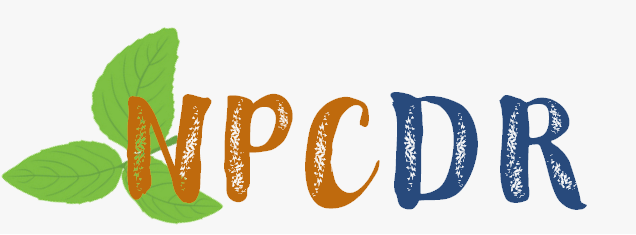Natural Product (NP) Details
| General Information of the NP (ID: NP8942) | |||||
|---|---|---|---|---|---|
| Name |
Calycosin
|
||||
| Synonyms |
Calycosin; 20575-57-9; 3'-hydroxyformononetin; 7-hydroxy-3-(3-hydroxy-4-methoxyphenyl)chromen-4-one; UNII-09N3E8P7TA; 7-hydroxy-3-(3-hydroxy-4-methoxyphenyl)-4H-chromen-4-one; 3',7-dihydroxy-4'-methoxyisoflavone; 09N3E8P7TA; CHEBI:17793; 7-hydroxy-3-(3-hydroxy-4-methoxyphenyl)-4H-1-benzopyran-4-one; 7,3'-dihydroxy-4'-methoxyisoflavone; HSDB 8109; 3-Hydroxyformononetin; 3'-hydroxy-formononetin; SCHEMBL73013; MLS000876988; CHEMBL241608; MEGxp0_001325; 7-hydroxy-3-(3-hydroxy-4-methoxy-phenyl)chromen-4-one; ACon1_000650; DTXSID70174580; HMS2268B05; BCP28682; HY-N0519; ZINC6018563; LMPK12050056; MFCD00210598; s9038; AKOS015896719; 3',7-dihydroxy-4'-methoxy-isoflavone; AC-8043; CS-3715; MCULE-7559555984; NCGC00169494-01; AK168211; LS-14468; SMR000440659; DB-045290; FT-0630465; N1412; X1103; C01562; 575C579; A814711; Q-100254; Q5024637; BRD-K05039497-001-01-6; 3-(4-methoxy-3-oxidanyl-phenyl)-7-oxidanyl-chromen-4-one; 7-hydroxy-3-(3-hydroxy-4-methoxyphenyl)-1-benzopyran-4-one
Click to Show/Hide
|
||||
| Species Origin | Astragalus ... | Click to Show/Hide | |||
| Astragalus | |||||
| Disease | Cervical cancer [ICD-11: 2C77] | Investigative | [1] | ||
| Structure |

|
Click to Download Mol2D MOL |
|||
| ADMET Property |
Absporption
Caco-2 Permeability
-4.886
MDCK Permeability
-4.804
PAMPA
- -
HIA
- - -
Distribution
VDss
-0.537
PPB
91.2%
BBB
- - -
Metabolism
CYP1A2 inhibitor
+++
CYP1A2 substrate
+++
CYP2C19 inhibitor
+++
CYP2C19 substrate
- - -
CYP2C9 inhibitor
++
CYP2C9 substrate
+++
CYP2D6 inhibitor
+++
CYP2D6 substrate
+++
CYP3A4 inhibitor
- -
CYP3A4 substrate
- - -
CYP2B6 inhibitor
+++
CYP2B6 substrate
- -
CYP2C8 inhibitor
+++
HLM Stability
-
Excretion
CLplasma
3.356
T1/2
1.601
Toxicity
DILI
+
Rat Oral Acute Toxicity
+
FDAMDD
++
Respiratory
++
Human Hepatotoxicity
-
Ototoxicity
- -
Drug-induced Nephrotoxicity
- -
Drug-induced Neurotoxicity
-
Hematotoxicity
- -
Genotoxicity
++
Tips: 1. For the classification endpoints, the prediction probability values are transformed into six symbols: 0-0.1 (- - -), 0.1-0.3 (- -), 0.3-0.5 (-), 0.5-0.7 (+), 0.7-0.9 (++), and 0.9-1.0 (+++).
2. Additionally, the corresponding relationships of the three labels are as follows: excellent; medium; poor.
Click to Show/Hide
|
||||
| Click to Show/Hide the Molecular Information and External Link(s) of This Natural Product | |||||
| Formula |
C16H12O5
|
||||
| PubChem CID | |||||
| Canonical SMILES |
COC1=C(C=C(C=C1)C2=COC3=C(C2=O)C=CC(=C3)O)O
|
||||
| InChI |
1S/C16H12O5/c1-20-14-5-2-9(6-13(14)18)12-8-21-15-7-10(17)3-4-11(15)16(12)19/h2-8,17-18H,1H3
|
||||
| InChIKey |
ZZAJQOPSWWVMBI-UHFFFAOYSA-N
|
||||
| CAS Number |
CAS 20575-57-9
|
||||
| ChEBI ID | |||||
| Herb ID | |||||
| SymMap ID | |||||
| TCMSP ID | |||||
| Combinatorial Therapeutic Effect(s) Validated Clinically or Experimentally | ||||||
|---|---|---|---|---|---|---|
| α. A List of Drug(s) Whose Resistance can be Reversed by This NP | ||||||
| Doxorubicin | Solid tumour/cancer | Click to Show/Hide the Molecular Data of This Drug | ||||
| Reversing Drug Resistance | Click to Show/Hide | |||||
| Representative Experiment Reporting the Effect of This Combination | [2] | |||||
| Detail(s) |
Combination Info
 click to show the detail info of this combination
click to show the detail info of this combination
|
|||||
| Molecule(s)
Regulation |
Up-regulation | Expression | SIRT1 | Molecule Info |
Pathway MAP
|
|
| In-vitro Model | H9c2(2-1) | CVCL_0286 | Healthy | Rattus norvegicus | ||
| In-vivo Model | Male Kunming mice (8- 10 weeks old; body weight: 22 +/- 2 g) were used to construct a short-term model of cardiomyopathy. | |||||
| Experimental
Result(s) |
Calycosin ameliorates doxorubicin-induced cardiotoxicity by suppressing oxidative stress and inflammation via the sirtuin 1-NOD-like receptor protein 3 pathway. | |||||
| Target and Pathway | ||||
|---|---|---|---|---|
| Target(s) | WD repeat-containing protein 7 (BATF2) | Molecule Info | [3] | |

